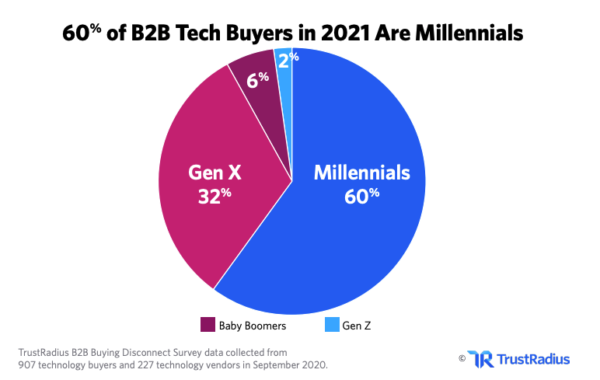
By Jon Flaherty-Fisco, Content Specialist
There is no question that data is a valuable marketing resource. Forbes found that 88% of companies use data to understand each customer better. Tracking campaigns, collecting relevant data, and optimizing content regularly creates a marketing machine that adapts to buyer behaviors. That kind of setup also makes scalable and repeatable processes that translate data into actionable decisions. A data-driven B2B agency understands this value and puts these processes into action.
Data-driven marketing refers to analyzing data to glean insights and make decisions on how to evolve. Consumer interactions and engagements are collected and analyzed to see what’s working and what needs to be fixed.
In order to implement it successfully, companies must analyze their current data and understand what they could be gathering later on. Most companies are collecting some data, even if it’s just names of customers and purchases. That data can be turned into actionable insights by understanding elements such as what age groups gravitate towards what products or what regions seem to engage with specific messaging versus others. This cycle of gathering data, analyzing it, and optimizing strategies keeps the company’s message relevant to the right buyer.
It’s not just that everyone is searching online for solutions to generic problems; it’s that those prospects searching want to solve their specific challenges. Those challenges vary depending on the industry, expertise, and age of the prospect. With 60% of all B2B tech buyers being millennials (age 25 – 39), it’s possible that current marketing efforts aren’t hitting the right tone or audience.

Working with a data-driven B2B digital agency brings a deeper level of customer understanding. That helps to create the right message for the right audience at the right time. A younger prospect may not see the ad your business ran on LinkedIn, but they may see the one you ran on their favorite tech blog. That’s why 53% of companies said that data made them more consumer-centric, and 75% have noticed growing consumer engagement due to data-driven marketing.
Implementing a data-driven marketing strategy will clarify what content is effective and what content needs updating. According to Forbes, customer loyalty (47%), gaining new customers (43%), and customer satisfaction/retention (42%) are the top competitive advantages achieved as a result of data-driven marketing. These aren’t “nice to have” anymore. With the competitive nature of the market and more companies looking to differentiate themselves in a challenging economy, a data-driven B2B agency is necessary to success.
By understanding what content can be used at what stage of a buyer’s journey, agencies can see how content moves buyers down the sales funnel. Companies can then use data to understand what content makes a prospect convert or what content turns them away. This kind of understanding can lead to optimized content and better conversion rates, ultimately leading to a positive ROI.
If personalized content is the goal, then a 360-degree view of a customer is the setup. Prospects and customers likely interact with your brand on multiple channels. In order to give them a great experience on each channel, a business must understand how the prospect uses that channel and what their identity is on that channel. This is known as identity resolution, and it can be done by creating multiple data points across various channels.
By creating a complete view of a customer, businesses can:
Once an understanding of a company’s customers is in place, cross-sell and upsell activity can be optimized. By identifying specific audiences and what resonates with them, companies can offer the next best products that address their challenges. Models can be set up using customer data to understand what product customers will gravitate towards and what the specific timing and channel of that interaction will be.
This is a more advanced data-driven use case that comes after the effective implementation of data-driven marketing strategies. However, once the model is in place, it can be scaled and repeated, opening audiences to products and solutions they may have been unaware of.
Measuring bounce rates and cost-per-click is a great place to start, but data-driven B2B marketing agencies can help companies dive even deeper. With the right agency and strategy in place, companies can use data-driven approaches that improve marketing performance across multiple channels.
Sources
TrustRadius, B2B Buying Disconnect: Forecasting Radical Changes in Buyer Behavior, 2021
Attom Data Solutions, Important Statistics on Data-Driven Marketing and What it Means for Your Business, November 2018
Forbes, Data Driven and Digitally Savvy: The Rise of the New Marketing Organization, 2015
IBM, Six ways to use Data Science to drive your cross-sell and upsell activity, December 2017
Stirista, 7 Crucial Data-Driven Marketing Trends (For 2019 and Beyond), November 2019
by Jonathan Franchell, CEO of Ironpaper - For more tips and hacks: Need to remove a new line after h1 tags? Both web designers and SEO practitioners need to employ headline tags: H1, H2, H3 in several ways to improve web page structure and tag...

The Crowded Arena of the IT Marketplace Updated December 2024 The Information Technology (IT) landscape is experiencing rapid growth and intensifying competition. IT spending is projected to reach nearly 5.1 trillion U.S. dollars in 2024, a...

Updated December, 2024 The field of digital marketing is evolving rapidly in response to new technology and changing buyer expectations. To help career-minded marketers, we’ve rounded up the top 10 skills needed to succeed in the field. These are...
